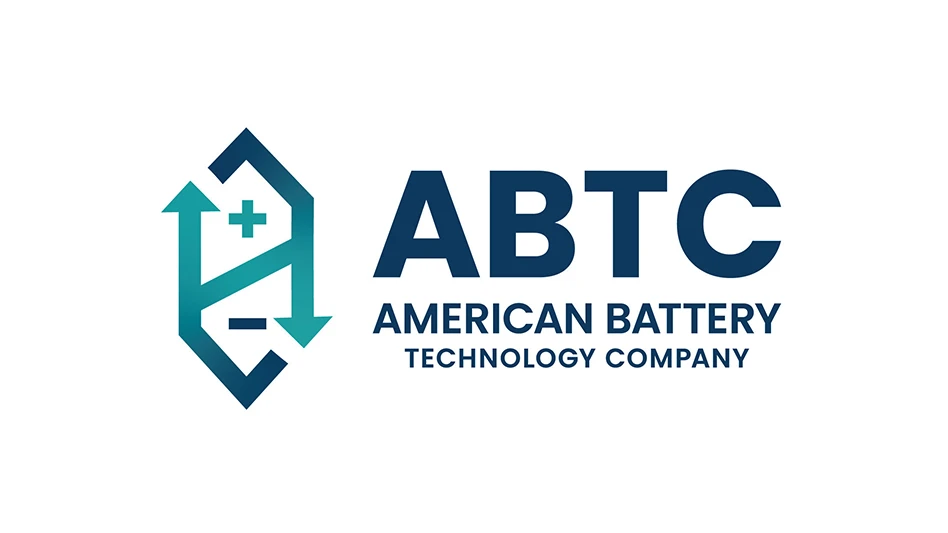The Chicago Board of Trade will be starting its Recyclables Exchange October 17, 1995. The CBOT Recyclables Exchange is a centralized exchange for recovered materials such as glass, plastic, and paper. Other recyclable materials can be broadcast through the system’s miscellaneous screen. Participants can use the on-line electronic bulletin board to post listings to buy or sell recyclable materials. Information on material type, quantity, quality, price and other relevant data will be included. Buyers and sellers will contact each other individually.
Once the terms have been agreed upon, the two parties may finalize the transaction by signing a standardized contract. Parties using the optional trade recordation feature agree to use third party quality verification and/or arbitration services should they be unable to resolve disputes. Based on these transactions, CBOT will post actual prices paid for materials by quality levels and geographic region. Terms and prices of individual transactions and identities of buyers and sellers will not be disclosed.
MATERIAL QUALITY
The CBOT system will allow for detailed product descriptions defining contamination levels, material quality and other data important to buyers and sellers. System users can set customized product specifications based on their individual needs.
DISPUTE RESOLUTION
By using the optional standardized contract, buyers and sellers may agree to resolve any unsettled disputes by arbitration. Testing and sampling procedures applied by third party laboratories and product experts may be used to assess the quality of delivered materials. These services are also available for routine quality testing. In cases where parties are unable to resolve disputes a network of arbitrators, trained by the American Arbitration Association, will be called upon to provide arbitration.
The annual fee for traders is $1,000. There is no additional charge for posting buy or sell listings, or for the trade recordation features. All participants must pay for their individual phone charges. Costs of third party quality verification and arbitration are paid by one or both parties to a dispute.
CBOT -- A Program Now Needed
Recyclables are commodities, not waste. How many times have we heard that expression? Major national recycling organizations, including the National Recycling Coalition and the Institute for Scrap Recycling Industries, have advocated this concept in numerous forums, while their members practice it in the marketplace. While not yet in the league of soybeans, corn and pork bellies, recyclable materials promise to be the next "true" commodities. The opening of the Chicago Board of Trade Recyclables Exchange will bring a new sophistication to the recycling marketplace and raise the status of recyclables to the level of their virgin material counterparts.
A collaborative effort of the CBOT, NRC’s Recycling Advisory Council, U.S. Environmental Protection Agency, Clean Washington Center and New York State Office of Recycling Market Development, the CBOT Recyclables Exchange is scheduled to open Oct. 17. With the system’s launch, recycling coordinators, haulers, processors, brokers and end users will have an electronic marketplace through which to buy and sell recyclable materials, verify quality, obtain accurate price information and resolve disputes.
The marketplace and demand for recyclables have expanded to unprecedented levels. As a result, buyers and sellers of these materials need more cost-effective methods to identify new suppliers and markets. Buyers and sellers who use the Exchange will be able to post offers to buy and sell glass, plastic, paper and other recovered materials at no charge, other than an annual subscription fee. The computerized, centralized marketplace provided by CBOT will offer users a low cost, no risk means through which to access a much broader range of potential trading partners.
In response to industry concerns regarding material quality and the frequency of quality disputes, the Exchange will offer features to independently verify material quality and settle any unresolved disputes between buyers and sellers. By recording transactions with CBOT, buyers and sellers mutually agree to abide by predetermined material specifications and quality verification and dispute resolution procedures. These features will improve product reliability and level the playing field between buyers and sellers by ensuring product quality and honest dealing, backed by arbitration services. The project partners have worked closely with industry-specific focus groups in designing the system and developing specifications and quality verification procedures. This input has been crucial in developing a system that will benefit all potential users.
The Exchange will provide key information for making strategic marketing and investment decisions. In today’s recycling marketplace, companies often hesitate in expanding recycling capacity because they are unsure about the availability and quality of recovered materials supplies. Municipalities hesitate to develop new or expanded collection programs because they are uncertain about the level of demand and value of the materials they are considering collecting. The Exchange will address these issues by providing reliable information on market conditions.
More accurate and timely price information, based on actual transactions, will allow buyers and sellers to verify they are getting fair market value for their material and encourage the orderly expansion of the recycling infrastructure. All of the aspects speak to one theme: enhancing the understanding of the value of the high-quality recyclable materials.
The project’s management team spent considerable time determining what commodities will be listed on the Exchange, and recently decided to include recovered paper grades on the system. The specifications are being developed to allow end-users to specify their exact needs. In light of current supply-side concerns, the system will provide a cost effective alternative to buyers and sellers to expand sources of recovered paper and could eventually help minimize dramatic price swings. Existing brokers will be able to use the system to expand their client base and provide small quantity suppliers with a low cost means of accessing a wider market. Just as brokers play a central role in the functioning of CBOT’s futures market, we believe they can and will do the same with the Exchange.
The Exchange will not only provide benefits to individual market participants, but also recycling in general. The system is currently undergoing testing by industry representatives to ensure its viability. The success of the system will ultimately depend on the extent of the industry’s participation. We challenge the recycling industry to participate in the system to make it the best possible tool to address the mutual concerns we all face in improving the long-term economic success of recycling.
As the world’s leading commodities exchange, CBOT recognizes these challenges and has joined with the recycling community to advance the marketplace for recyclable materials. -- Edgar Miller
The author is director of policy and programs for the NRC.
Improved Markets, Not More Information, Needed
The CBOT undertaking -- at least as I understand it -- is designed to increase the volume of glass and plastic recycled (though paper and "other recovered materials" are now apparently included).
The underpinning of the CBOT project is to gather more market information -- market information available at a central location using modern technology -- that will, somehow, broaden the demand levels for recyclables in a way that other marketing mechanisms apparently cannot achieve.
The proponents have urged this approach suggesting that what is lacking is sufficient information on the part of buyers and sellers to insure a "market" that will be able to absorb all the offered supply. In other words, once the volume is shown to be available/desired, the volumes are thus better known, and the magic of the information age will insure that market clearing will ensue.
One hears that the CBOT project will provide a number of otherwise unattainable -- or if available, improved benefits:
1. Better access to needed information -- both supply and demand data.
2. Better quality control.
3. Arbitration procedures where differences arise.
These are not problems requiring an undertaking of the magnitude of the CBOT process.
All the market information one could want is available via a phone call -- it is no secret who the prospective buyers might be. Likewise, the available supply and the names of the organizations which generate that supply are not difficult factors to obtain.
Quality arrangements remain an issue between buyer and seller, and the CBOT will not be able to remove the heterogeneity issues that characterize the trade in recyclables.
However, approaches directed at the problems are already available and used on a continuing basis in the secondary material industry. Arbitration procedures already exist to deal with the issues of disputes -- and they work.
Thus, it is not that the CBOT service is wrong or inappropriate, it is just that the problem existing for glass and plastic is not one of information, but rather one of demand. (Indeed, one wonders why paper is included, given recent and current market conditions).
If sufficient demand were available for the various glass and plastic materials, there would be no need for a CBOT program -- buyer and seller would meet the marketplace and conduct the needed trade. Quality would be addressed and a dispute resolution would be available. The factors that would make it all work are demand and a marketplace -- factors that have worked since time immemorial for the recyclables with longer market histories than glass and plastic.
What is needed is demand -- market demand -- not market information. If the buyer is there, the seller will know very quickly; the reverse is also true.
Such a phenomenon has always characterized the market for recyclables. This CBOT project, which apparently requires EPA financial underpinning to even get underway, is flawed in its premise -- more demand is needed, not more market information. -- Herschel Cutler
The author is executive director of the Institute of Scrap Recycling Industries.
Miller Responds
In response to Herschel Cutler’s opinion piece, it is important to point out that the CBOT project partners have never promoted the CBOT Recyclables Exchange as a panacea to increase the demand for recycled materials.
Sponsored Content
Still relying on manual sorters?
Let AI do the heavy lifting. Waste Robotics delivers reliable, high-performance robots tailored for complex waste streams. They require minimal maintenance, are easy to operate, and are designed to boost your recovery rates. Smarter sorting starts with the right partner. Waste Expo Booth #1969 & REMA #2843
Click here to see our robots in action!Admittedly, the project grew out of efforts to address market development issues, but the partners have never stated increasing demand as a primary objective. Rather, the project has been developed to enhance the existing market infrastructure for recovered materials by improving the overall efficiency of the recycling marketplace.
The marketplace for recycled materials has changed dramatically over the last year. As a result of recent recycling market trends, major end users of recyclable materials have expressed serious concerns about the available supply of high-quality, reasonably priced materials.
At its recent National Recycling Congress (held in Kansas City, Mo., in September), the NRC convened a high-level task force of industry representatives to examine supply-side concerns. While agreeing that aggressive market development programs must continue, many members of the task force suggested the recycling marketplace need mechanisms to provide better price information to market participants to help them make strategic decisions about expanding collection programs.
Once again, a key theme emerges . . . we are dealing with commodities, not waste, and a mechanism that communicates both the value and market conditions of these materials will only aid in addressing both supply and demand-side concerns. In looking at how the system will address marketplace needs, it is important to note that the materials to be traded have experienced growth in demand. While the prices for these materials will continue to fluctuate, as with all commodities, the increase in demand is real, and intensifies the need for the exchange.
By providing a centralized, electronic marketplace the Exchange will make it easier and more efficient for buyers and sellers to access a larger number of potential material sources and markets. If the current system is adequate, why are end users expressing serious concerns about supply?
The quality verification and dispute resolution procedures will improve product reliability and level the playing field for buyers and sellers.
While the current system may provide some degree of resolution for contractual disputes, adequate procedures do not exist to resolve disputes based on quality concerns. Out of the more than 200 respondents to a recent market survey conducted for the project, over one third indicated they have had problems resolving disagreements over quality issues.
As noted in Cutler’s article, EPA’s financial support for the project has been critical to its development. The administration has stated that the CBOT project is an exemplary public/private partnership and typifies their efforts to promote market-based, non-regulatory approaches to address environmental concerns.
While EPA’s support has been significant, each of the project partners, including CBOT, has contributed substantial resources to the project.
The project partners believe the Exchange will elevate the public’s perception of recyclables as commodities, not waste, and will improve the reliability of recovered materials, thereby encouraging their use in manufacturing. These are common goals we all share and hope to achieve through the development of the Exchange. -- Edgar Miller.
Cutler Responds
Edgar Miller is an articulate spokesman for the Chicago Board of Trade project; he has outlined why the support for the program has moved the undertaking to the proposed inauguration date of October 17.
But where is the proof that "companies often hesitate in expanding recycling capacity" because they are not satisfied that material will be available at the quality level they require?
It seems the opposite is readily proven. One need only look at the huge increases in consuming capacity for certain recyclables which do not suggest an inhibition in such capacity creation. Or should one generalize that municipalities have been reluctant to undertake recycling programs or expand existing ones because they are not certain "about the level of demand and value of the materials" to be collected?
The difficulty in finding markets for certain recyclables in existing collection programs, much less new ones, is more a battle cry.
In fact, the many arguments all boil down to the suggestion, noted in my original article, namely that somehow "reliable information on recycling market conditions" will solve the problems -- both those of prospective investors in recyclable consuming facilities and those of prospective suppliers of the recyclable materials.
Information cannot solve whatever problems exist. The effort would more productively be directed at demand creation, the ultimate solution. -- Herschel Cutler

Explore the August 2001 Issue
Check out more from this issue and find your next story to read.
Latest from Recycling Today
- Circular by Shapiro releases "5 for Five" sustainability series
- Graphic Packaging set to close Ohio CRB facility
- Ameripen voices support for Maryland EPR bill
- Matalco to close Canton, Ohio, plant
- Maryland county expands curbside recycling to include electronics
- California EPS ban will be enforced
- YKK AP America introduces BetterBillet
- Fresh Perspective: Cameron Keefe







